“Helping the Alaskan Natives understand that their traditional foods are the healthiest and best for them is such a high calling for me,” said NHBP Tribal Member Jessilyn Dunegan, MS, RD, CSP, LD, CNSC. “Their traditional ways with food help move their culture forward.”
Fulfilling her calling, Dunegan has served as a Medical Therapy Nutrition Manager for the Alaskan Native Medical Center (ANMC) in Anchorage, Alaska, since 2020. She has spent her career in dietetics throughout Alaska, also known as the “land of the midnight sun,” validating what the Native people have long known about the health benefits of their traditional diet.
“Salmonberries, which are native to Alaska, have some of the highest concentrations of vitamin C of any berry,” Dunegan said. “The omega-3 fatty acids found in seal oil and herring eggs are anti-inflammatory agents, which help with healing and disease prevention.”
While meatloaf or roasted chicken typically comprise a patient’s hospital dinner entrée, ANMC provides a vast array of traditional menu selections like seal oil, walrus, herring egg salad, moose chili, duck soup and more, as supplies and harvest seasons allow. ANMC has been offering these traditional Alaskan food choices for its patients, visitors and staff through its Traditional Foods program since 2016.
Incredibly, people all over the state generously donate these local food staples to help in the healing process of those who either stay or work at ANMC during these trying times.
In recent months, this homage to traditional foods has created headlines in international news organizations, such as The New York Times and Canadian Broadcasting Company’s segment, Unreserved.
Through this recent media attention, Dunegan and other ANMC staff have highlighted the importance of traditional foods, bringing global awareness to the heritage of Alaskan Natives and food sovereignty.
Although born and raised in Michigan, the heritage of the Alaskan people is something that Dunegan holds dear.
As a fresh-faced Central Michigan University graduate majoring in dietetics, Dunegan flew into Nome, Alaska, to “stay for the summer” to complete a dietetic internship in 2010.
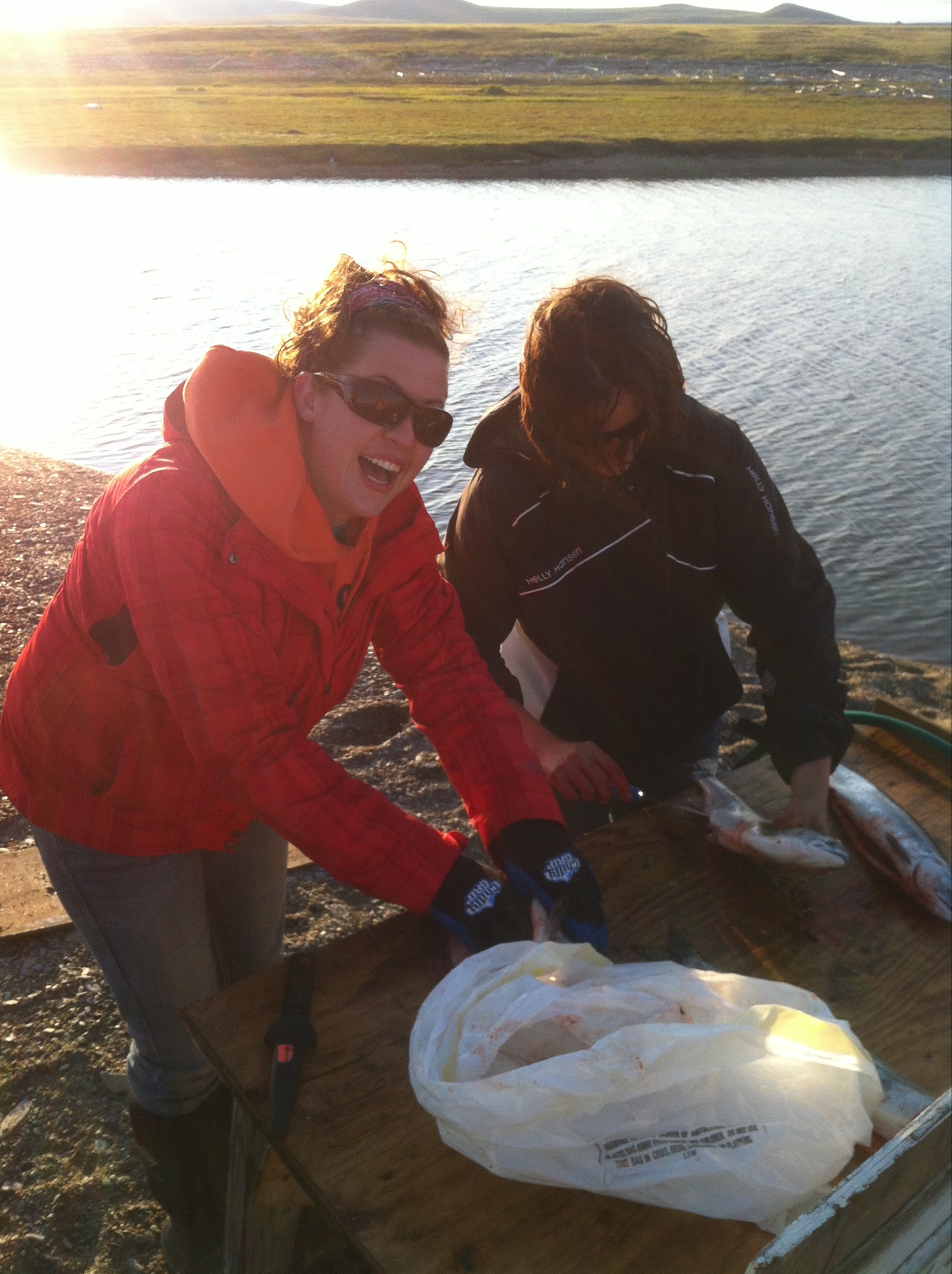
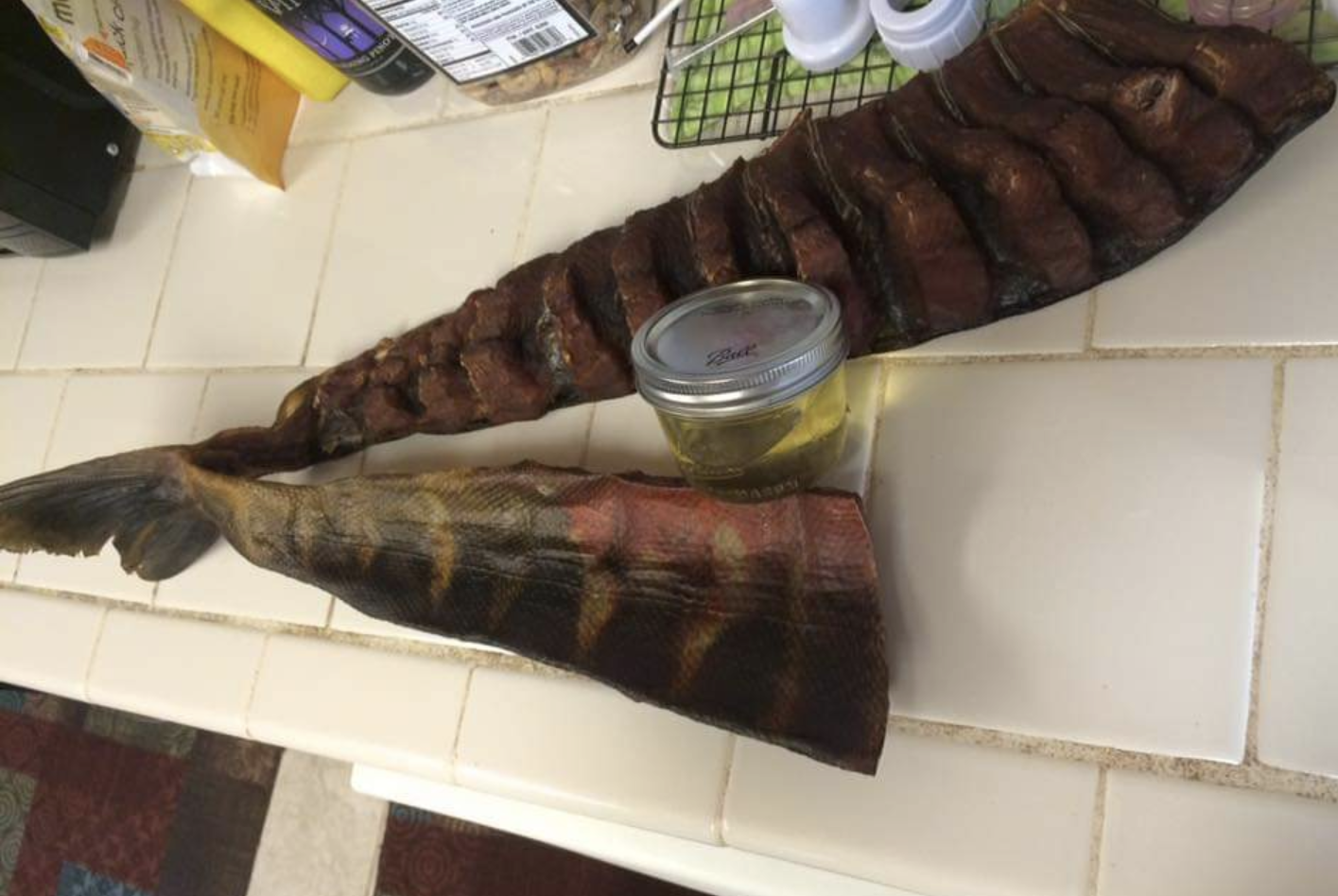
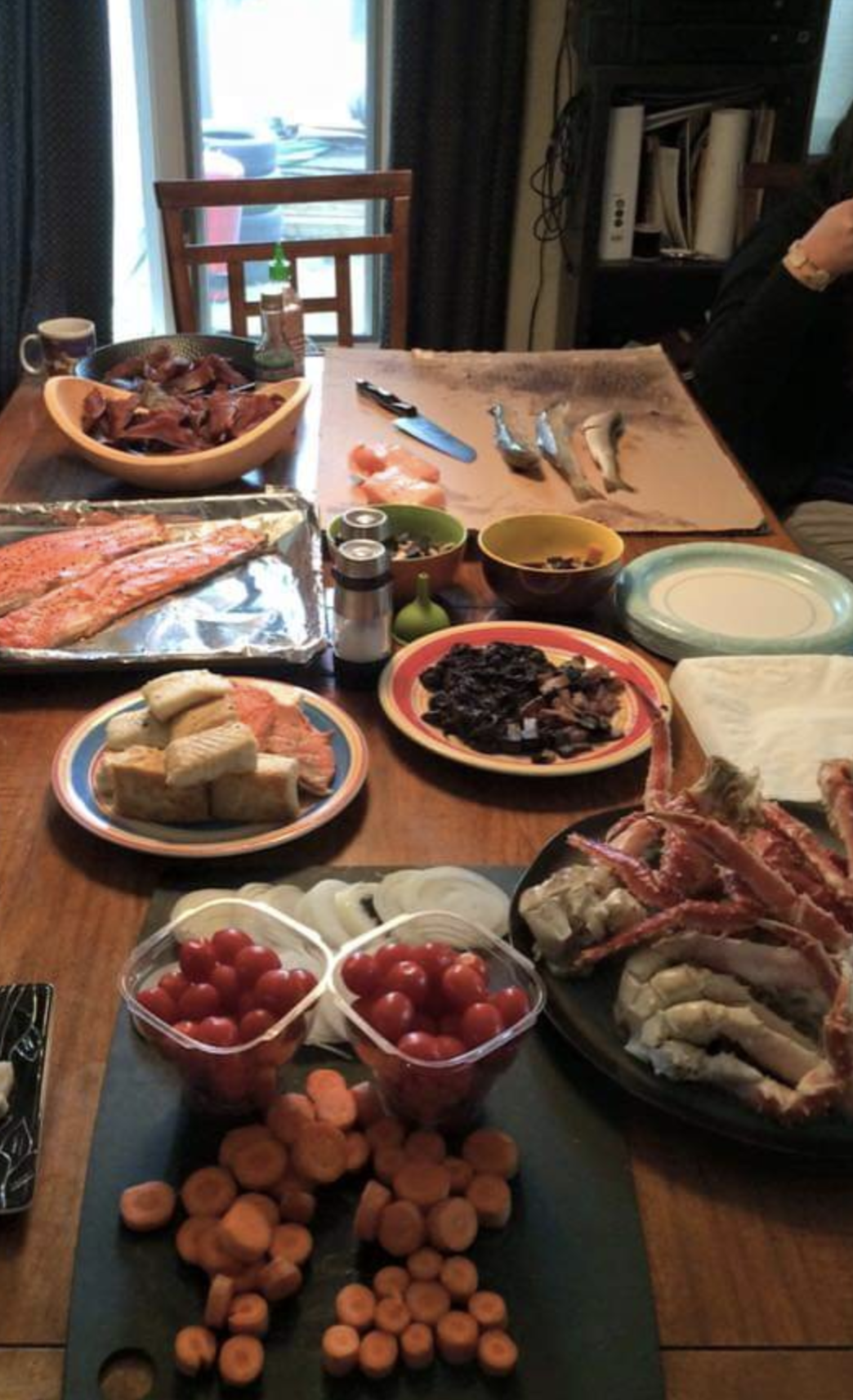
Landing in Nome for the first time in an airplane because “there are no roads leading into the town” was a “shock to me,” recalled Dunegan.
With a population of merely 3,500, Nome is considered large enough by Alaskan standards to serve as a “hub for 12 remote villages, one being on St. Laurence Island,” which is physically located closer to Russia than to mainland Alaska. Her internship consisted of leading a program tailored to Alaska Native children in these villages, teaching them about diet and preventive health measures.
Steep learning curves quickly came Dunegan’s way.
“They didn’t have running water in these villages. You used a ‘honey bucket’ for sanitary needs. This is America. It’s very hard to fathom people living in your country without running water. You have to adjust how you teach food preparation if you are hauling buckets of water into homes for cleaning.”
Despite these challenges, Dunegan quickly grew to appreciate the local cultures and sense of community.
“Sometimes we would stay with community members in their homes, rather than in the clinic or schools, as these villages do not have hotels,” Dunegan said.
“I remember thinking that first summer, ‘this landscape is so pretty, I just love it here, but I am not sure how anyone can live here in the winter.'”
Dunegan soon learned firsthand how people survived Alaskan winters after she accepted a permanent dietetics position in Nome.
“I didn’t have a car my first year in Alaska, so I walked everywhere. The temps drop to 30 degrees below. Outdoor gear was extremely important. As long as you had your body covered, you were safe. The cold feels different than the cold in Michigan.”
Having grown up in Alpena, Michigan, Dunegan was no stranger to the cold. Still, it was an adjustment moving to the tundra — especially for the food.
“In Alaska, there is very little fresh produce. It’s extremely expensive when you find it; prices are insane,” Dunegan said. “Grocery shopping is a completely different experience up here than in Michigan.”
These differences did not frighten her away. Instead, Dunegan built a flourishing dietetics career that brought her from Nome to Anchorage. She has worked in both inpatient and outpatient settings, using her skills to help everyone from the smallest patients in outpatient pediatric clinics to the hospital’s sickest patients in the Intensive Care Unit. Even after becoming a manager at ANMC, Dunegan still performs direct patient care, a role that she relishes.
“I love the medical complexity of caring for all the different types of patients here in Alaska, whose scope is so large,” Dunegan said. “We see certain genetic disorders specific to this region, such as sucrase-isomaltase deficiency, which is the inability to break down starches in large volumes, kind of like being lactose intolerant of sugar.”

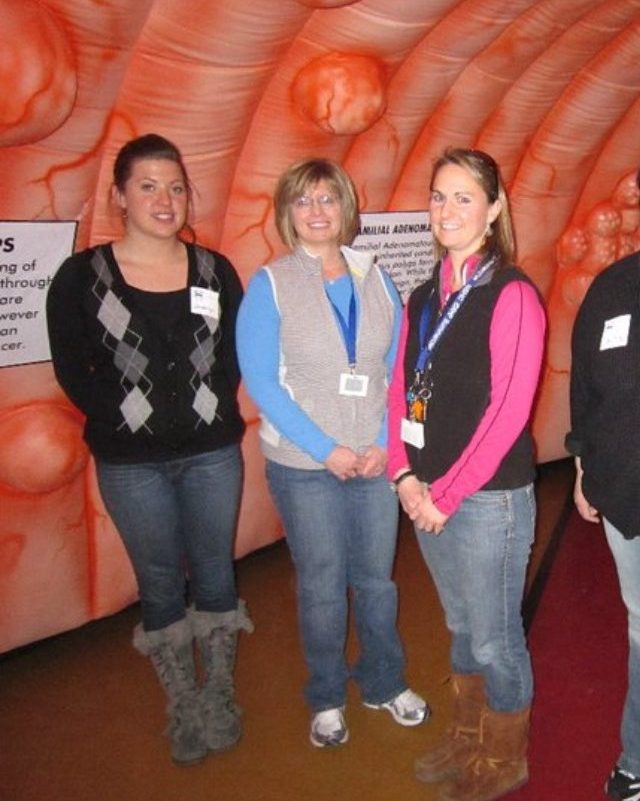
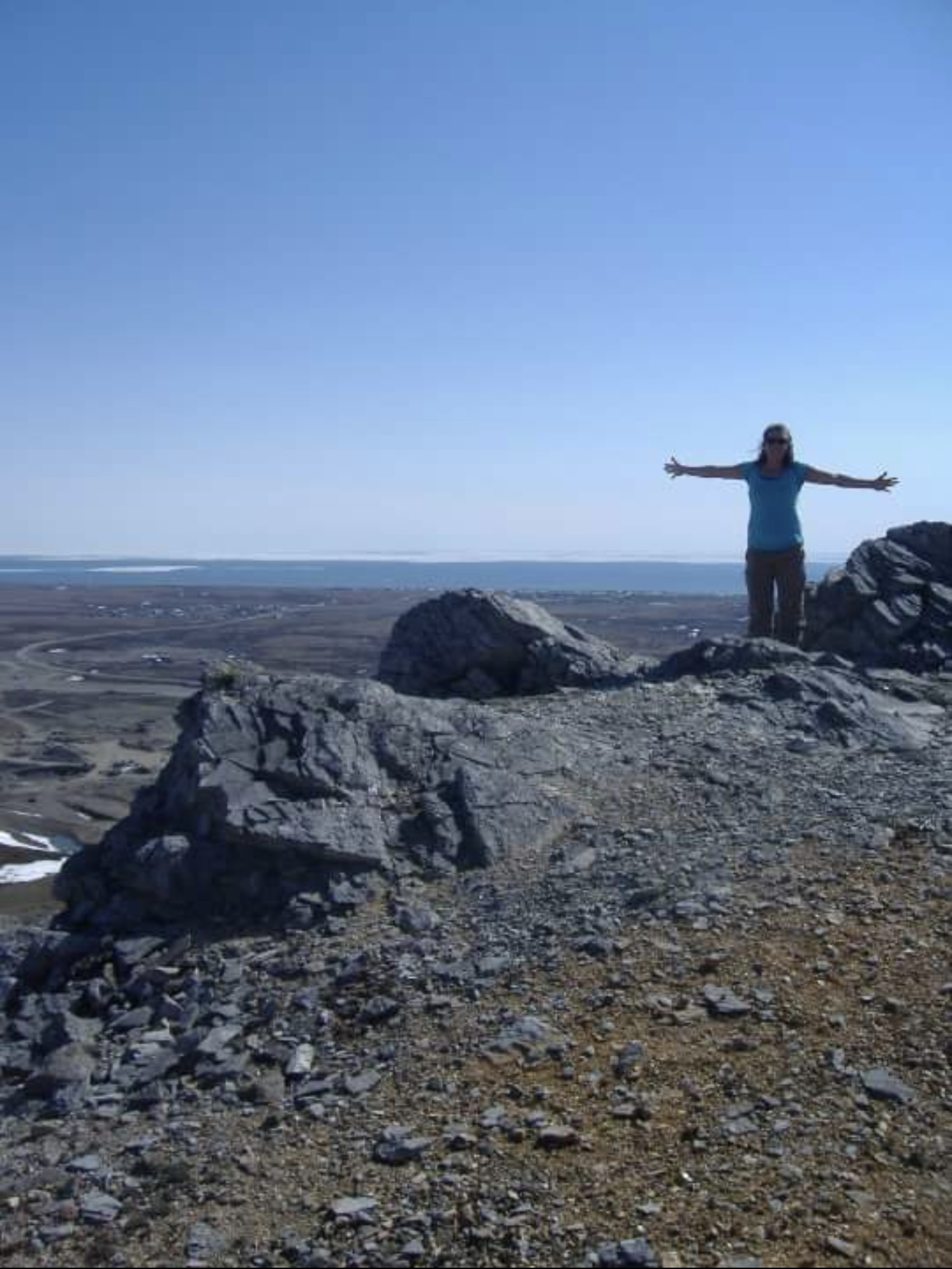
Not only growing her career, Dunegan has also grown her family in Alaska with her husband, Michael, an Alaskan Native of Yup’ik descent. Working in construction, he has built infrastructure to allow for running water in the same remote Alaskan villages where Dunegan served as an intern. The pair met while he was helping build a new hospital close by where Dunegan worked. Together, they have two children and reside in Anchorage, home to roughly one-third of Alaskan residents.
Even after 12 years spent in Alaska, she directs much gratitude toward NHBP back in Michigan.
“As a Tribal Member, I’m very grateful for the Educational Enhancement Program; without it, I wouldn’t have been able to earn my master’s degree in clinical dietetics,” Dunegan said. “I am the first one in my family to earn a master’s. My dad was a teacher. He passed away when I was 14, but I know he would have been so proud.”
Continuously seeking a higher purpose in whatever she does, Dunegan has been accepted into the United States Public Health Commissioned Corps, with her call to active duty beginning in June 2022.
“My education enables me to help others in so many more ways, and it will only advance my career.”
Dunegan hopes to eventually return to Michigan to work directly with NHBP to help support food sovereignty and the overall health and well-being of her Tribe.

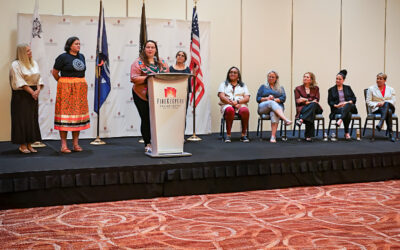


0 Comments